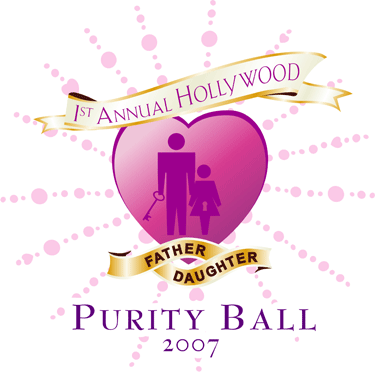New & Massive: The Rumpus

Schwartz is one of those writers who you’ve probably never heard of, and who, but for the dice of fate might just as easily have become a household name. USA Today named her first book of stories, Imagine a Great White Light, one of the best books of the year of 1991. (Actually, if you think about it, USA Today talking about a book of stories at all is amazing in and of itself–if it was tougher than a mountain-climb then, it’d probably take two miracles now.) Anyway, her debut novel, Lies Will Take You Somewhere–which in a just world would never have had to be described as “posthumous”–is out this month from Etruscan Press. In “What Happened To Sheila,” her husband Dan Chaon guides us through his wife’s life and works, and recounts for us the delightful story of their courtship, when he was “an undergraduate student, and she was a first time teacher, straight out of Stanford…” Chaon writes: “I know I’m only one of many of her students who fell madly in love with her, but I happened to be lucky.”
It’s an incredible story, and it seems to me emblematic of the kind of stellar, unique work that The Rumpus is committed to publishing, so after you click over there and read it, click back over this way and read my Q&A with editor Stephen Elliott, which you can find right after the jump. We talk about the impetus for founding the site, what’s missing from the mainstream blogosphere, and the challenges that promising web-projects like his (and ours!) face and how to overcome them or die trying. Plus, you know, other awesome stuff too.
Power Quote: M.L. Rosenthal

Behind much of [Edward Arlington] Robinson’s work, in both its more successful and its less successful aspects, lies a deeply American obsession with the theme of failure: failure of a career, failure of a social class or a society, failure of a needed meaning to sustain itself–and, finally, the inevitable failure of life to resist death’s encroachment. Remembering Eliot’s motifs of sexual and spiritual failure and Pound’s savage complaints at a culture’s failure to realize itself, we see how much those poets have in common with Robinson after all. ‘When we think of America,’ said D.H. Lawrence in his introduction to Edward Dahlberg’s novel Bottom Dogs, ‘and of her huge success, we never realize how many failures have gone, and still go to build up that success.’
– “Rival Idioms: The Great Generation” (being Chapter Five of The Modern Poets: A Critical Introduction)
**BONUS**
Read Robinson’s “Miniver Cheevy”
Read Robinson’s “Richard Corey”
Read Lawrence’s “Last Lesson of the Afternoon”
Enough failure for one day? Ready for earthy pagan Modernist resurrection sex?
Read Lawrence’s “New Heaven and Earth”

Daily affirmation.
New Poets Off Poetry up at Coldfront

Maybe some of you remember Poets Off Poetry, Jackie Clark‘s continuing mission to get poets to talk about something else for a change–namely music–which used to run on This Recording but then stopped. Well it didn’t die, it only moved to Coldfront, where it has been thriving. The latest installment features my–and Jackie’s–former teacher and much-esteemed buddy, the inimitable Mark Bibbins (whose website seems to be MIA at present, and whose forthcoming collection from Copper Canyon, The Dance of No Hard Feelings, doesn’t seem to have an Amazon page yet, so, uh, sit tight I guess). In his P.O.P., Bibbins talks about My Bloody Valentine, Goldfrapp, Portishead, The Verve (who are back, apparently), Stereolab, Deerhunter, and many more musicians you either have or haven’t heard of. Ample YouTube embeds for illustration make this a must-read and potentially a slow load, so why don’t you click on it now, go pour a coffee, then come back and settle in for a real good time. [JUSTIN: that last sentence begins as a question but ends with a period. What gives? -ED. / BLAKE: By the end of the sentence I realized it was an imperative, not an interrogative, and I want the readers to experience that transformation with me. -JT]
Read “Tatooine Sunset: An Assembly of Last Year’s Fantastic Things” by Mark Bibbins.
George Saunders and his enormous, throbbing heart: a homily

Is George Saunders the most radical fiction writer writing in the mainstream today? Or to put it a possibly better way, is Saunders the most mainstream of today’s radical fiction writers? I don’t mean “radical” in terms of style or form–though Saunders has certainly done his share of innovating–but I invoke the term rather in its classic political connotation. I’ve read most of Saunders’s books, and worked with him when I edited Come Back, Donald Barthelme, but something clicked for me yesterday when I read “Al Roosten,” his new story in the current issue of The New Yorker, and after the jump I’m going to talk about it for about 3000 words, and at some point there will be some spoilers, and it’s not really a “spoiler alert” kind of story, but anyway maybe you want to read the story before you read this.
Cheever, in his boxer shorts, convinces me to continue writing short stories.
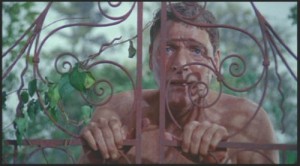
From the essay “Why I Write Short Stories,” which is collected in the Library of America’s upcoming John Cheever: Collected Stories and Other Writings:
To publish a definitive collection of short stories in one’s late 60s seems to me, as an American writer, a traditional and a dignified occasion, eclipsed in no way by the fact that a great many of the stories in my current collection were written in my underwear.
Another selection from the essay:
A collection of short stories appears like a lemon in the current fiction list, which is indeed a garden of love, erotic horseplay and lewd and ancient family history; but so long as we are possessed by experience that is distinguished by its intensity and its episodic nature, we will have the short story in our literature, and without a literature we will, of course, perish.
May you be correct, Cheever. The rest of this very short essay can be found here.
The Life-Affirmier side of Rant
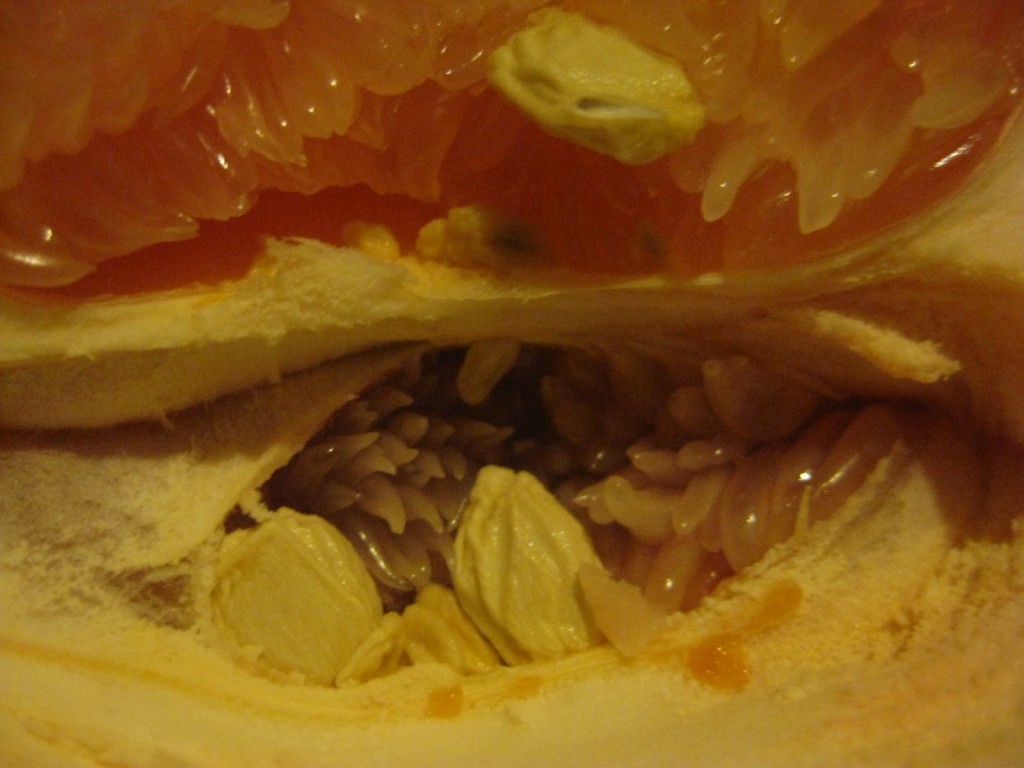
the gooey, somewhat sexual insides of this grapefruit are like the gooey, somewhat sexual insides of all our hearts. Photo (c) Julia Cohen.
Regular readers of this blog know that Julia Cohen is a frequent target of my admiration, but she gets special attention today for this awesome blog post, which starts off with portents of a not-good-news confession, then quickly becomes an apocalyptic screed, and then somehow finds itself soaring into an affirmation of why we all participate in the conversation of Arts & Letter, as well as a sort of declaration of her personal poetics and an expression of gratitude and thanks “to everyone who works in a creative medium.” Then to really round things out, there are two pictures of a bed designed to look like a cheeseburger. Anyway, you should take a minute and now and go read the whole post, which packs a lot of heart into a not-a-whole-lot of space, but here’s my favorite part:
Reading experimental poetry, listening to music, seeing a film or an art show, or reading theory that puts something in this world that is beautiful, constructive, advances dialog and new avenues of understanding- these are the moments that make me feel we, as humans, can provide something positive that would not exist on this planet without us. That’s the glow. For poetry, I’m intrigued by work that dismantles and then plays with the un-gendered “I,” that explores new forms of address, reckoning, and evinces culpability for the human and non-human other. Through new communication via what some may call anti-narrative, the links between fragmented image, quiet but firm declarations, and the transitive property of memory in complimenting and translating subjective experience to an other. Works that are about inclusive resistance and inclusive revolt, that emanate a destabilizing yet regenerative force, that may on the surface look surreal though are anything but.
I think it’s fascinating that one of the most talented, compelling and elusive poets I know (or know of) should somehow come to produce some of her most nakedly earnest and straightforward utterances in the course of articulating the value of art that fragments, challenges, “dismantles” or otherwise subverts conventional notions of narrative and meaning. This paradox seems, to me at least, to be exactly the point.
*****SPECIAL JULIA COHEN BONUS SECTION*******
Remember last week, when I liked Cohen’s chapbook, The History of a Lake Never Drowns ?
Three of her poems in diode v1n3
Cohen co-edits Saltgrass, which has a new issue (#3) out, which I’ll probably blog about at some point in the future, probably about two days after whenever she gives me a copy of it.

Cohen at the KGB Bar, with Paige Taggart (left), 10/08. Photo (c) Star Black.
Eyeball it
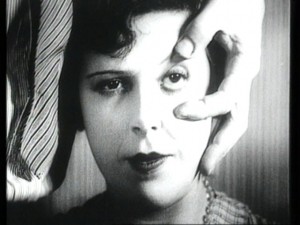
My friend Ryan has been writing a column about film on The Rumpus for a little while now, and I thought I’d bring it to your attention. I’ve been enjoying it.
Here’s a nice post on the movie Old Joy, a movie I wrote about on the Hobart blog. (Link in the comment I made to the post, if you’re interested.)
Here’s an interesting take on Guy Maddin’s Dracula. (Dracula is currently my favorite Maddin film. I had, until watching it, never really connected with ballet.)
And here’s a post about Lord of the Rings and the War on Terror.
Power Quote: Special T.O.C. edition, for keith n.b., with double special bonus shout-out to Paul Violi

In a comment on yesterday’s “Power Quote” post, one of our regular commenters said he couldn’t find much about M.L. Rosenthal’s The Modern Poets: A Critical Introduction on the web. Well, neither could I, actually, which is one of the reasons that my post had links to some Yeats poems he had written about instead of to anything by Rosenthal himself. So by special request, please find below the T.O.C. to the book, plus some info on Rosenthal, for the edification and enjoyment of all. Before we get to that, however, I want to give a shout-out to Paul Violi. I was lucky enough to study with Paul when I was an MFA at The New School. Of all the poets–hell, all the people–I know, he’s easily one of the best- and widest-read, and is always generous with his vast knowledge when I get a bug up my ass about this or that poetry-related topic and start suddenly shooting him emails. Most recently, that topic has been Ezra Pound. Paul pointed me to Rosenthal specifically for chapter three, “EZRA POUND: THE POET AS HERO.” After–or before–you check out the T.O.C. to this book, I emphatically recommend you click over to Paul’s website and check him out, if you don’t already know his work.
Power Quote: M.L. Rosenthal
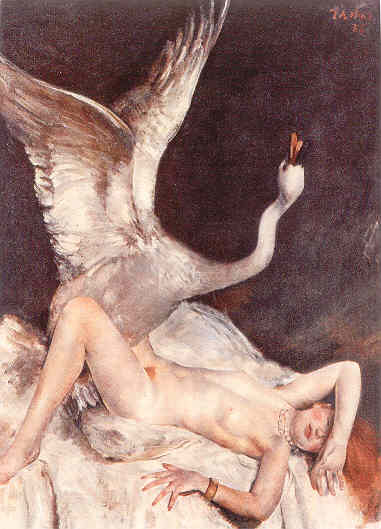
Modern poetry as a whole tends to be tragic in its assumption that we are at a cultural dead end, in which myriad values at cross-purposes, with modern political values the most virulent of all, are choking each other to death. The major poetic situation is the struggle of a heroic sensibility, or Self, to free itself from the condition of living death imposed by this murderous predicament. Clearly, the most elementary way to gain such freedom is to insist on the priority of instinct and emotion over all logical and systematic thought and over the demands of society. In many poems, Yeats fastens on the sexual act and the mystery of sexuality as the ultimate source of meaning.
-“Yeats and the Modern Mind”
(in The Modern Poets: A Critical Introduction; (c) 1960)
Some problems just never get old, do they?
read “Leda and the Swan”
buy Poetry in English: An Anthology; M.L. Rosenthal, ed.

